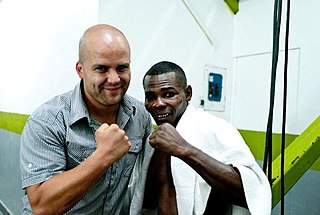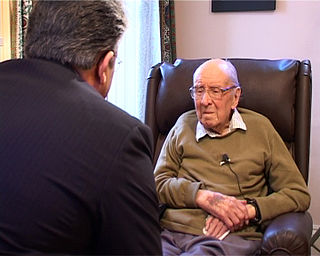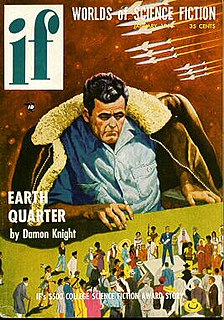A Quote by Tom Tancredo
Muhammad Ali was unquestionably one of the greatest boxers of the 20th century and a sincere advocate for his religious beliefs. In his life, he defeated the best professional boxers of his era, some of them more than once, which meant he was easily forgiven the excesses of his ringside braggadocio.
Related Quotes
His readiness to undergo persecutions for his beliefs, the high moral character of the men who believed in him and looked up to him as leader, and the greatness of his ultimate achievement - all argue his fundamental integrity. To suppose Muhammad an impostor raises more problems than it solves. Moreover, none of the great figures of history is so poorly appreciated in the West as Muhammad.
[T]he central problem of government is a religious one; and anyone who assumes that he can form his political beliefs without consulting his ethics, which have their basis in religious conviction, is deceiving himself either about the true nature of government or his moral responsibility for his actions
Quincy [Jones] is one of the greatest world figures, of all-time. I mean he's up there with Muhammad Ali, as far as I'm concerned. His humanitarian work, his contribution to the world and music - he's really an amazing man. Even political divides don't affect his humanity. So, to me, that was extremely meaningful.
The life-history of the individual is first and foremost an accommodation to the patterns and standards traditionally handed down in his community. From the moment of his birth the customs into which he is born shape his experience and behavior. By the time he can talk, he is the little creature of his culture, and by the time he is grown and able to take part in its activities, its habits are his habits, its beliefs his beliefs, its impossibilities his impossibilities.
Muhammad Ali inside the ring and Muhammad Ali outside the ring were totally different men; his abrasive, magnetic daring and infectious self-love outside the ring galvanized the world and distracted many from his sniper's precision. He was a heavyweight with the fluttering gracefulness of a middleweight.
All my life I have made it a rule never to permit a religious man or woman take for granted that his or her religious beliefs deserved more consideration than non-religious beliefs or anti-religious ones. I never agree with that foolish statement that I ought to respect the views of others when I believe them to be wrong.
If a man withdraws his mind from the love of beauty, and applies it as sincerely to the love of the virtuous; if, in serving his parents, he can exert his utmost strength; if, in serving his prince, he can devote his life; if in his intercourse with his friends, his words are sincere - although men say that he has not learned, I will certainly say that he has.
Man in his raw, natural state as he comes from the womb is morally and spiritually corrupt in disposition and character. Every part of his being-his mind, his will, his emotions, his affections, his conscience, his body-has been affected by sin (this is what is meant by the doctrine of total depravity)


































